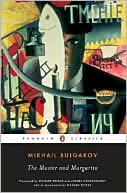Category Books
- Fiction Books & Literature
- Graphic Novels
- Horror
- Mystery & Crime
- Poetry
- Romance Books
- Science Fiction & Fantasy
- Thrillers
- Westerns
- Ages 0-2
- Ages 3-5
- Ages 6-8
- Ages 9-12
- Teens
- Children's Books
- African Americans
- Antiques & Collectibles
- Art, Architecture & Photography
- Bibles & Bible Studies
- Biography
- Business Books
- Christianity
- Computer Books & Technology Books
- Cookbooks, Food & Wine
- Crafts & Hobbies Books
- Education & Teaching
- Engineering
- Entertainment
- Foreign Languages
- Game Books
- Gay & Lesbian
- Health Books, Diet & Fitness Books
- History
- Home & Garden
- Humor Books
- Judaism & Judaica
- Law
- Medical Books
- New Age & Spirituality
- Nonfiction
- Parenting & Family
- Pets
- Philosophy
- Political Books & Current Events Books
- Psychology & Psychotherapy
- Reference
- Religion Books
- Science & Nature
- Self Improvement
- Sex & Relationships
- Social Sciences
- Sports & Adventure
- Study Guides & Test Prep
- Travel
- True Crime
- Weddings
- Women's Studies
The Master and Margarita (Pevear / Volokhonsky Translation) »

Authors: Mikhail Bulgakov, Richard Pevear (Translator), Larissa Volokhonsky (Translator), Richard Pevear
ISBN-13: 9780141180144, ISBN-10: 0141180145
Format: Paperback
Publisher: Penguin Group (USA) Incorporated
Date Published: January 2001
Edition: (Non-applicable)
Author Biography: Mikhail Bulgakov
Book Synopsis
Suppressed in the Soviet Union for twenty-six years, Mikhail Bulgakov's masterpiece is an ironic parable of power and its corruption, good and evil, and human frailty and the strength of love. Featuring Satan, accompanied by a retinue that includes the large, fast-talking, vodka drinking black tom cat Behemoth, the beautiful Margarita, her beloved - a distraught writer known only as the Master - Pontius Pilate, and Jesus Christ, The Master and Margarita combines fable, fantasy, political satire, and slapstick comedy into a wildly entertaining and unforgettable tale that is commonly considered one of the greatest novels ever to come out of the Soviet Union. "A wild surrealistic romp.... Brilliantly flamboyant and outrageous."-Joyce Carol Oates, The Detroit News; "Fine, funny, imaginative.... The Master and Margarita stands squarely in the great Gogolesque tradition of satiric narrative."-Saul Maloff, Newsweek; "Funny, devilish, brilliant satire.... It's literature of the highest order and . . . it will deliver a full measure of enjoyment and enlightenment."-Publisher's Weekly; "A rich, funny, moving and bitter novel.... Vast and boisterous entertainment."-The New York Times
Publishers Weekly
Bulgakov's satire of the greed and corruption of Soviet authorities illustrates the redemptive nature of art and faith, and Julian Rhind-Tutt's superb interpretation does the classic full justice. With a dramatic flair and a deep, multilayered voice, he pulls off a host of fantastical characters including Professor Woland (Satan) and several of his associates, Pontius Pilate and Jesus Christ, witches and madmen and a variety of early 20th-century Moscow literary and theater types. Two minor caveats: a few characterizations are too nasal, and his cockney accents for low-class Russian characters are a bit disconcerting. (June)
Table of Contents
Subjects
 Fiction & Literature Classics
Fiction & Literature Classics  European Fiction & Literature Classics
European Fiction & Literature ClassicsFiction Books & Literature
 Fiction Subjects
Fiction Subjects  Humorous Fiction
Humorous FictionFiction Books & Literature
 Fiction Subjects
Fiction Subjects  Literary Styles & Movements - Fiction
Literary Styles & Movements - FictionFiction Books & Literature
 Fiction Subjects
Fiction Subjects  Politics & Social Issues - Fiction
Politics & Social Issues - FictionFiction Books & Literature
 Fiction Subjects
Fiction Subjects  Settings & Atmosphere - Fiction
Settings & Atmosphere - Fiction
